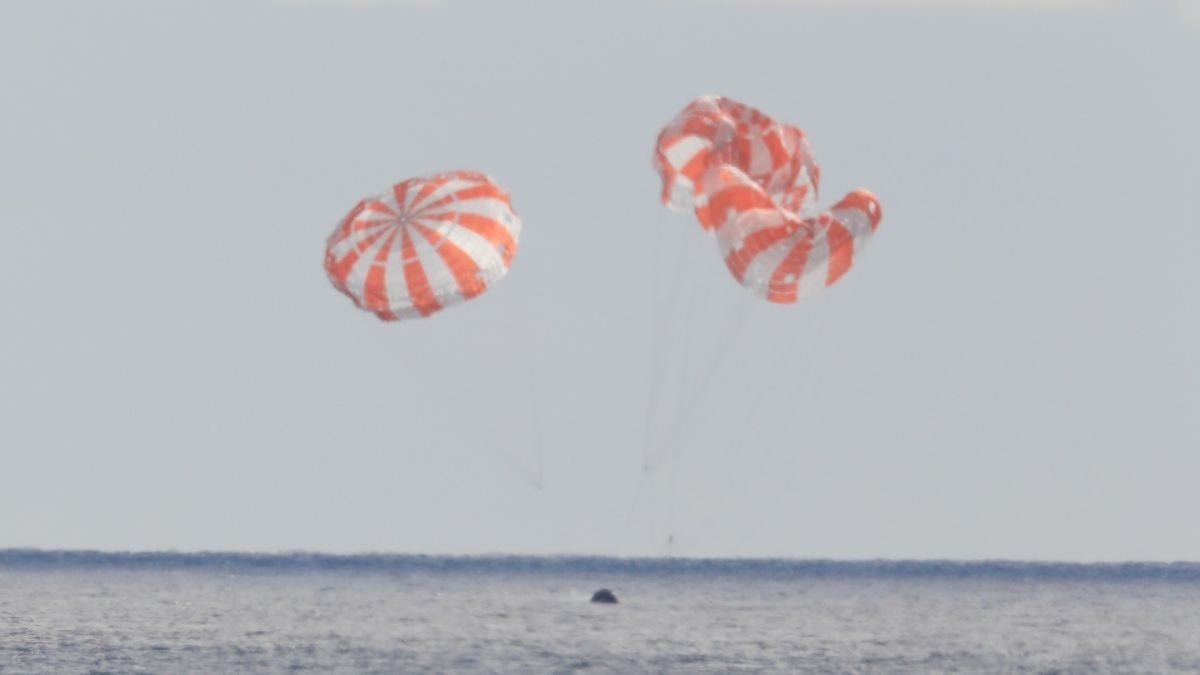
NASA's Artemis 1 Orion spacecraft returned from its 26-day, record-breaking 1.4 million-mile (2.2 million kilometers) roundtrip to the Moon on December 11, 2022. The uncrewed spacecraft re-entered Earth's atmosphere at an impressive speed of 25,000 mph (40,000 kph). This is 32 times faster than the speed of sound. The capsule's flawless splashdown into the Pacific Ocean marks the first step in returning humans to the Moon again.
Orion lifted off from Cape Canaveral, Florida, atop NASA's Space Launch System (SLS) on November 16, 2022. The SLS is currently the world's most powerful rocket. During its almost month-long mission, Orion performed two flybys of the Moon. On November 25, 2022, the spacecraft reached a staggering 268,563 miles (432,200 km) from Earth. This is the farthest a capsule designed to carry humans has ever traveled from our planet.

While there were no humans aboard, Orion did have a few passengers. At the helm was Commander Moonikin Campos, a mannequin with sensors to provide NASA insights into better protecting human astronauts on the Moon.
Two other seats were occupied by female mannequins, Helga and Zohar. One donned a radiation protection vest, while the other was unprotected. The torsos were made of materials that mimic human organs and bones. They helped NASA measure the effects of radiation exposure on the female body. The information will be used to create protective suits for female astronauts.
Also on board were Snoopy and Shaun the Sheep. The toys acted as zero-gravity indicators. When the stuffed animals began to float around, NASA knew the spacecraft had reached microgravity.

Orion's successful journey paves the way for the Artemis 2 mission. Expected to launch in 2024, it will carry six astronauts on an eight-day trip around the Moon. If all goes well, the Artemis 3 mission will launch sometime in 2025 or 2026. It will attempt to land humans on the Moon again for the first time in over 50 years. The Artemis missions are the start of NASA's ambitious plan to establish a permanent base camp on the Moon.
Resources: Space.com, NASA.gov, CNN.com
